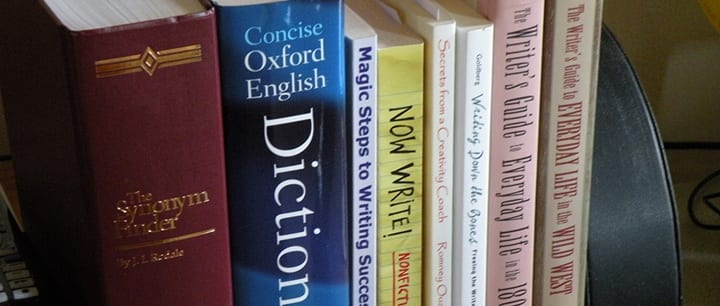 As a young writer, you might be wondering what it’s like to write a novel. What goes into the process? How in the world do authors get started, especially when you look at writers like Stephen King, who has written several novels of over 1,000 pages? Keep reading to learn how to break down the process and make it much more manageable:
As a young writer, you might be wondering what it’s like to write a novel. What goes into the process? How in the world do authors get started, especially when you look at writers like Stephen King, who has written several novels of over 1,000 pages? Keep reading to learn how to break down the process and make it much more manageable:
Start with Brainstorming
Start small – as small as a single word or sentence. It might seem silly, but it can help you stay focused before your imagination starts going wild! The word could even be a simple feeling or action, that you’ll draw on as you progress through your writing.
Next, expand to the overall theme of the novel and draw branches or arrows outwards to potential characters, subplots, timelines and more. The key is to get your ideas down onto paper. You might not use everything that you write down, but at least you’ll get the creative juices flowing and find your starting point.
Understand Character Relationships
The most successful books and novels tend to focus on relationships and how they develop throughout the story. Art should reflect life, and the meaning that we draw out of life usually stems from our relationships with others. As you begin writing your ideas down and brainstorming, make sure you have a strong foundation for the characters in your story and their relationships with each other.
Ask For Help
Better yet, consider working with a writing tutor. A writing tutor will provide valuable advice, help you overcome writing roadblocks, and offer an honest critique as you’re writing your first novel. Just remember: a student is usually only as good as his teacher, so seek out a writing tutor whose work you enjoy and who emulates the type of writer you want to be.
Show, Don’t Tell
You’ll also need to understand that writing a quality novel requires showing the reader what’s happening in the story instead of telling the reader. For example, instead of writing, “Tom raised his hand,” consider something more like this: “Tom slowly lifted his arm off of the desk and waved two fingers through the air.”
Specific descriptions of actions, sounds, and just about everything else empowers the reader to envision exactly what you are trying to portray. Go back and re-read your favorite novels and pay particular attention to how the author describes the story to the reader instead of telling it. Mark your favorite descriptive passages for easy reference in the future. This can provide inspiration for those difficult moments when you’re stuck and can’t find the perfect combination of words.
Start With a Short Story
If you typically have trouble ending your stories, try writing it as a short story first. Spend some time wrapping up your ending nicely, and then let it sit for a few days. Then, re-read your work and think about where you can expand it, add in more twists, or do more character development. Writing short stories is a great exercise to practice anytime you want to get some words out, but don’t have a ton of time to commit. It’ll make the task of writing your first novel less intimidating and facilitate the writing process, since you can go back and draw on the plots and characters you already created in your mind.
Have Patience
Writing your first novel can be a daunting process – but don’t get discouraged! If you experience writer’s block, put down the pen and do something else. Shoot some hoops, play a video game, or go for a long walk. You might stimulate your brain enough during these activities to come up with the idea that you were looking for.
Even if you don’t end up publishing your work – or even showing it to anyone – the more you write, the more you’ll improve and find your voice. Keep at it, and stay positive. Good luck!
Photo by Kristin Nador
Suzy S.

